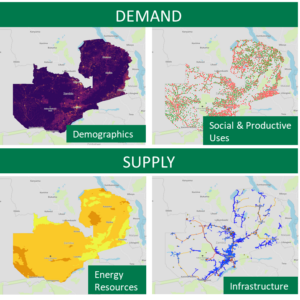Nairobi, Kenya, 28th March 2020 – As the world pulls together to fight the Corona Virus (COVID -19), the Africa Clean Energy Technical Assistance Facility (ACE TAF) is cognisant of the global disruption caused by the pandemic in all the countries we operate. We will be playing our part by adhering to the guidance provided by the World Health Organization (WHO) and the local governments in the 14 countries in which we operate. This virus has changed the way we work, communicate and live.
At this time of crisis we would like to amplify the significance of the off-grid sector in providing essential services such as access to clean energy in the form of lighting and phone charging, and access to information through solar powered radios and televisions to millions of households across the continent. The importance of the sector is demonstrated in the following areas:
- Clean energy: This reduces the burden on the health system from non-communicable diseases brought on by the use of polluting energy sources such as kerosene lamps. Further, as COVID-19 is a virus that attacks the respiratory system, households that use polluting sources of energy would be more vulnerable and susceptible to the impact of the virus if infected. It is vital for the government therefore to improve the general health of its citizens.
- Information: In this crisis the government has used media to reach its citizens with important directives and with up to date information of the unfolding crisis. Many citizens in off-grid areas are accessing this information through solar powered radios and TVs.
Taking Stock – Impact on the Sector
Many of the ACE TAF countries were on a good trajectory towards achieving their individual universal energy access goals aimed at vulnerable off-grid communities. This has been side-tracked by the COVID-19 pandemic which has impacted the sector in the following ways:
- Manufacturing Slow Down: Most off-grid solar products are currently manufactured in China and the greater Asia continent. The lockdown in those countries is already beginning to be felt with disruption to the supply chain and volume of products entering the market.
- Delays in clearance of goods: The directives to work from home have been applied to both the public and the private sector. This means that even essential goods such as off-grid solar products cannot be processed at the port of entry with speed, further restricting supply.
- Lower sales and access: The directives on the closure of businesses and social distancing will impact the sale of solar products. This will reduce revenue for companies and increase the cost of doing business, risking jobs and further damaging local economies.
- Potential job losses: Decreased revenues will likely lead to the loss of many of the jobs created by the sector, especially through distribution agents working in the off-grid communities.
- Credit Losses: The off-grid sector has grown due to innovative financing models such as the Pay-As-You-Go (PAYG) model. Existing customers on daily wages will not have the money to pay for their daily instalments, leading to significant credit losses for PAYG companies.
What is ACE TAF doing?
Protecting our team, partners and stakeholders:
- We have put in place a business continuity plan to ensure that we can continue to support our partners and stakeholders. Our staff are working from home to reduce staff exposure to potential infections. Our priority is the welfare of our staff and their families.
- All travel has been suspended and we are promoting the use of virtual meetings for our staff, partners and Government counterparts using telephone or video calls solutions.
How we are supporting the sector:
We are taking an ecosystem approach and are looking for ways to support multiple levels of the value chain. We continue to interact virtually with all our key stakeholders to take stock of the situation and to identify ways in which we can provide assistance. We are reaching out to our Government counterparts to assess the immediate needs and how ACE TAF can support their management of the crisis. This will include, but not be limited to:
To address border restrictions:
- Advocate for OGS as an essential good that needs to provide energy to homes and keep the lights on in remote and rural areas, asking for fast-track border processing.
- Promote simplified custom guidelines that can further increase the speed and efficiency of product customs processing.
To address pressure on credit repayments and access to affordable goods we are looking at customer affordability mechanisms through a study on Demand Side Subsidies which is currently ongoing.
Sector Coordination:
More than ever, now is a time for all stakeholders to come together to find solutions. We are uniquely placed to coordinate this response. We work across private sector, industry associations, donors and 14 governments. We will use our networks to bring key players together to stimulate a cohesive, coordinated and effective response to this unprecedented challenge.
For further information please reach out to the ACE TAF team through info@ace-taf.org










